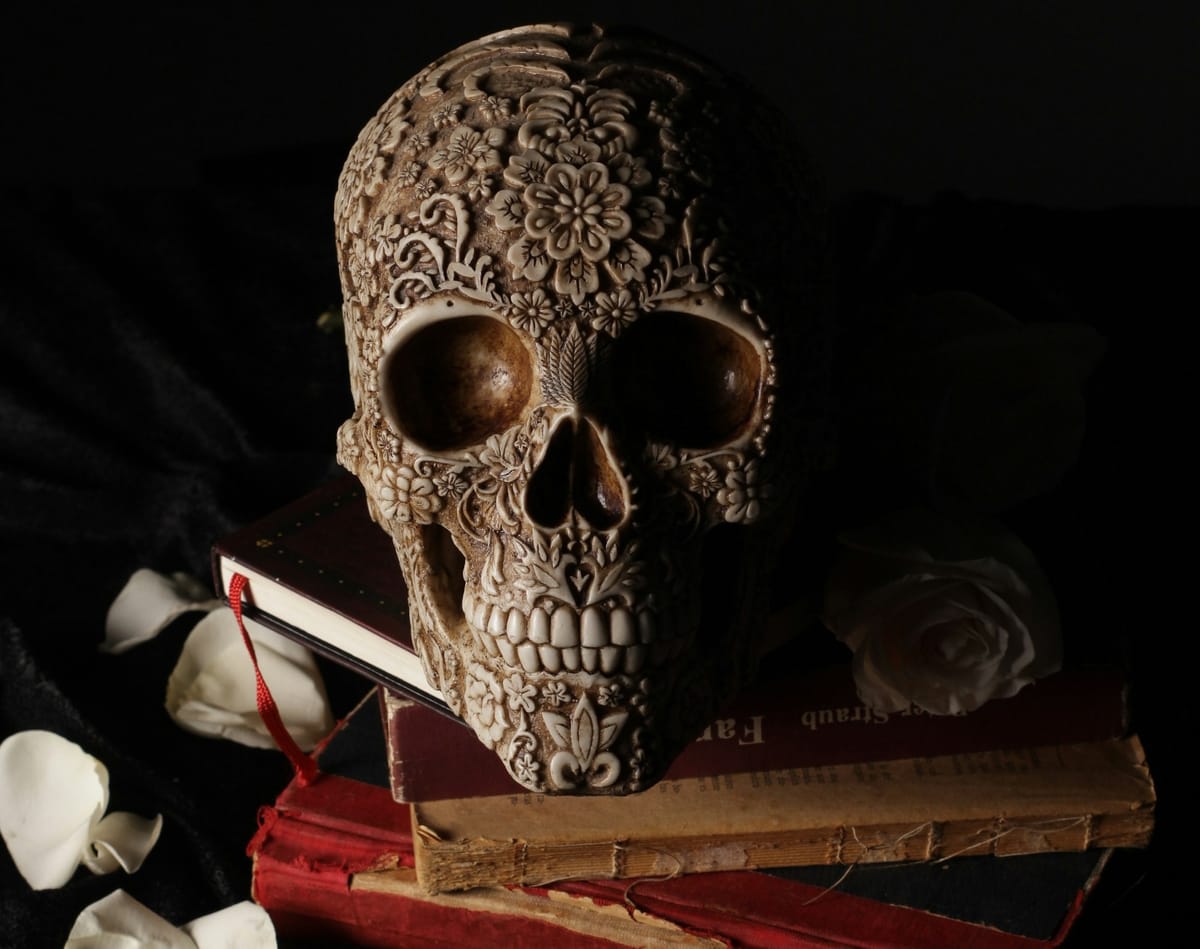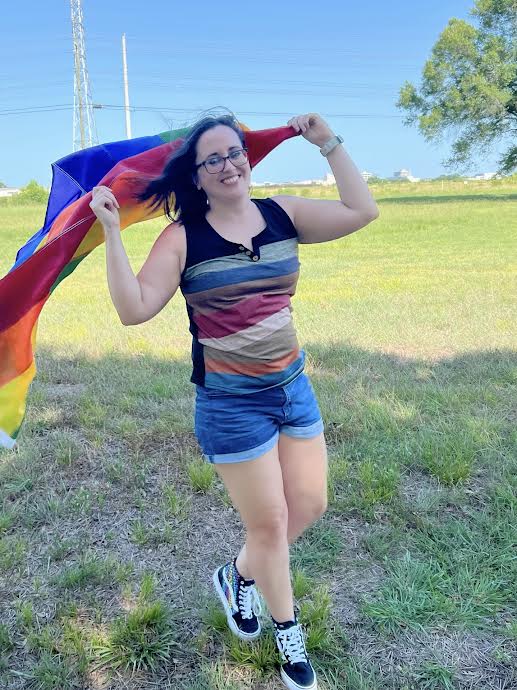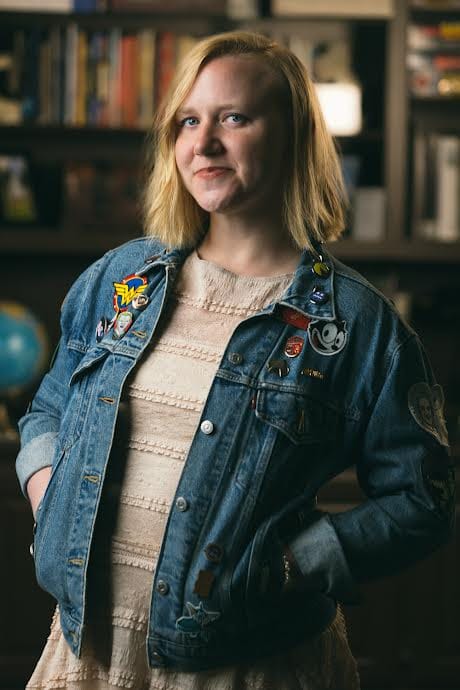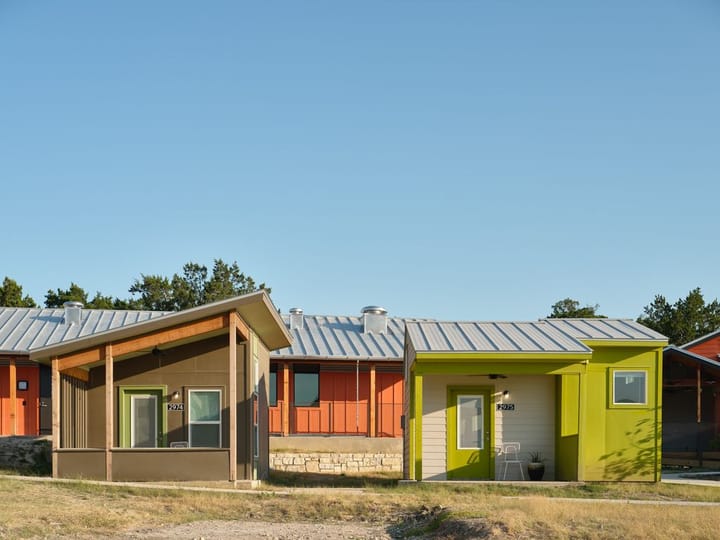Queer Horror Authors in Texas

It’s a scary time to be LGBTQ+ in Texas, but the state’s horror authors are using their voices to make sure the terror is felt both ways.
Gabrielle Faust is among the loudest queer horror voices in Texas. Since 2008, she has released twelve novels and anthologies. Her latest is Blood Games, a collection of vampire tales that include California queer horror icon Sumiko Saulson, among others. Faust’s own story, “Saving Face,” is a gruesome exploration of how killers lie to themselves.
The modern vampire is deeply tied to queerness going all the way back to Sheridan Le Fanu’s Carmilla.
“I think that there is an element of becoming a vampire that is liberating in on so many levels,” says Faust. “The vampire is no longer a creature bound by ‘human society norms.’ They are free to express themselves, however, and with whomever they choose, in whatever way they choose. If they had felt repressed in their former human form, they are released from the bonds of human civilization, of religion, and the dictations of politicians, judgmental family members, or previous religious traumas.”
Horror is transgressive. Because it upends the world from its norms, things that are deemed unacceptable often thrive. For queer authors, it leads to a delicate dance between what is horrifying and what is welcoming to people treated like horrors themselves.
There is no doubt that LGBTQ people in Texas are currently being targeted as if they were monsters. Much of the rhetoric around banning trans people from various public spheres relies heavily on painting them as maniacs. Meanwhile, equating queer people to succubi and incubi that prey on children is as old as the Third Reich. Seeped in horror, it’s hard not see the genre as a welcome platform for queer writers.
“Throughout the South, the evangelical religious right has become more emboldened to turn their hate toward us,” says Faust. “Just when we thought we had taken ten steps forward, we've now been dragged back into the 1970s in many ways. It's terrifying. But we continue to fight and create ‘sanctuary cities.’ Horror is definitely a genre through which authors can explore topics such as societal suppression and fighting back against injustices. It's also a way for us to work through our own internal struggles, our fears, our feelings of violations and repression by a society that seems at times hellbent on destroying us.”
Holly Lyn Walrath is a non-binary writer from Houston, though that doesn’t really encompass her many talents. She’s a poet, a visual artist, and a publisher in her own right thanks to Interstellar Flight Press.

Earlier this year, she released a novella called Bone Light from Tenebrous Press as part of their Split Scream series. It follows two women who have to tend a haunted lighthouse made largely of drowning victims’ skeletons while slowly falling in love. It’s a delightfully gothic story full of romance, ghosts, and Walrath’s razor-sharp language.
“Women actually had a very active role in ‘keeping the lights’ throughout history because, like in my story, men often passed away and wives took over,” says Walrath. “I wanted to tell a story about someone who discovers their sexuality late in life, and the representation of authentic bisexual love was particularly important to me. Ghosts are manifestations of history, and I wanted to show queer history in a way that felt realistic.”
Walrath uses her writing to deftly carve her way into the gritty realities of being queer in Texas. While having a gay protagonist that makes it out of a story alive is certainly progress, modern horror expects writers to cut deeper. In her story “Daughters of Eve,” Walrath works with the messy natures of consent in relationships using a queer framework.
Having grown up in a conservative Southern Baptist home where she felt demonized for gender identity and sexual orientation, she makes it a habit to reclaim the monster as a symbol for marginalized LGBT people. One poem, “B Movie Babies,” makes this very stark (reprinted with permission).
B Movie Babies
We spent our Fridays and Saturdays
at the Dollar 8 next to the Pizza Hut
watching Jackie Chan subbed
and Godzilla or Kong or
risqué coded gay vampires
sneaking in through propped
open exit doors
making out in the dark
eating gummy bears
and popcorn till we puked—
it would be easy to call us
spoiled rotten
but the truth is more like
we were bored
and hungry—
oh so hungry
when other kids
filled up their nights
with Friday night lights
we filled up our brains
with the pleasant ooze
of unbeing—
of unbelieving—
of unbothered—
we wanted to know
there were worse
monsters than us.
“Being queer is terrifying. Texas is terrifying,” says Walrath. “But it's also filled with beautiful, diverse, powerful people who want to see change. Horror is about survival, and the best survivors are people who can find hope in it all.”
A queer author making a big splash with her first novel is Bonnie Jo Stufflebeam. The DFW native just released Grim Root, where a reality dating show ends up hosting its finale in a haunted house. The writing is wonderfully sinister, with hints about ax murders and shapes coming out of the walls.
But more than anything, Grim Root comes across as a kind of wish fulfillment. How many times has an audience watched a group of women fight over a handsome but mediocre bachelor and thought, “why don’t the women run away with each other?” Stufflebeam takes that idea and runs with it.

“I like to write queer horror because I like to read queer horror,” says Stufflebeam. “As a high schooler growing up in Texas when the internet was not quite as big, it was hard to find representation.”
She knows what it’s like to be scared. Her school outed her to her parents when she was dating a girl, though everything turned out fine in the end. Still, Stufflebeam is used to seeing queer moments in stories, but not so many queer people. Grim Root places queerness at the heart of modern television’s most egregious heterosexual institutions. Setting it in a haunted house makes it even clearer how oppressive society can be to two women falling in love.
“Horror is a good place to explore queerness because there are a lot of experiences where we are told that we can’t be there,” says Stufflebeam. “When you’re in a small Texas town holding hands with a woman, you’re afraid. There’s a certain type of person who slows down and makes you afraid.”



Comments ()